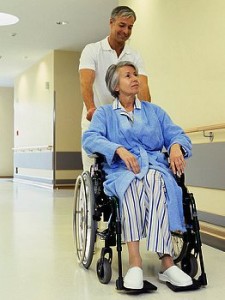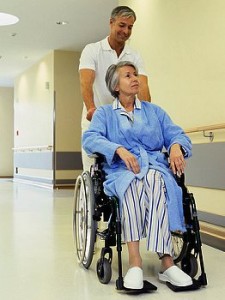 |
Stephen Edward Samuelian has made a successful career out of developing safe and comfortable skilled nursing facilities. Here, the founder of Covenant Care, Inc. offers advice to adults looking to find new living situations for aging parents.
ZRYLW: Thank you, Mr. Samuelian, for being here today. Stephen Edward Samuelian: Thank you for having me. ZRYLW: Today, we’d like to discuss how to choose care for a senior parent. Our first question is from a reader, and it’s actually the reason we’ve chosen this topic. Megan G. from Laguna Beach, California, asks, “How do I know when it’s time to consider putting my mom in a nursing home?” |
ZRYLW: Is there a difference?
Stephen Edward Samuelian: Yes, there are major differences in the two.
ZRYLW: Can you explain?
Stephen Edward Samuelian: “Nursing home” is a fairly generic term for senior care and often refers to a facility that focuses primarily on day-to-day needs.
ZRYLW: Such as…?
Stephen Edward Samuelian: Activities like bathing, eating, and mobility. A skilled nursing facility, on the other hand, focuses chiefly on complex medical issues.
ZRYLW: Medical needs that a nursing home cannot handle?
Stephen Edward Samuelian: Yes, exactly. A skilled nursing facility ensures 24/7 access to medical care; a nursing home may only have providers on hand during certain hours.
ZRYLW: Is there a difference in the quality of staff?
Stephen Edward Samuelian: A skilled nursing facility is required to have a variety of skilled licensed and certified employees including registered nurses, medical assistants, and different types of therapist.
ZRYLW: So how do we know when our parents need a nursing home or a skilled nursing care program?
Stephen Edward Samuelian: It has a lot to do with their current physical and mental capabilities. A nursing home is a fine option for seniors that simply need help with medication, cooking, cleaning, and getting around.
ZRYLW: And a skilled nursing facility is for those who need constant medical attention?
Stephen Edward Samuelian: Yes, that’s right.
ZRYLW: How difficult is it to transition from a nursing home into a skilled nursing care facility?
Stephen Edward Samuelian: Some nursing homes actually have skilled nursing care units and rooms available on-site. However, more comprehensive programs may be found at dedicated skilled nursing locations.
ZRYLW: What would you say is the primary concern when choosing a skilled nursing program?
Stephen Edward Samuelian: The main focus is always the health and safety of the family member entering the facility.
ZRYLW: What are some things to look for in a skilled nursing facility or nursing home?
Stephen Edward Samuelian: I would first say look at how the staff interacts with the patients. Are they showing respect for each resident? Does everyone seem well taken care of? Is the staff aware of any potential dangers that may be lurking?
ZRYLW: Potential dangers? Can you give us an example?
Stephen Edward Samuelian: Safety hazards are not always obvious. It takes a good staff to keep an eye out for frayed carpets, accidental spills, or trash that may have fallen to the floor.
ZRYLW: We’d love to discuss this in depth later but we’re out of time for today. Thank you for being here.
Stephen Edward Samuelian: It has been my pleasure.
